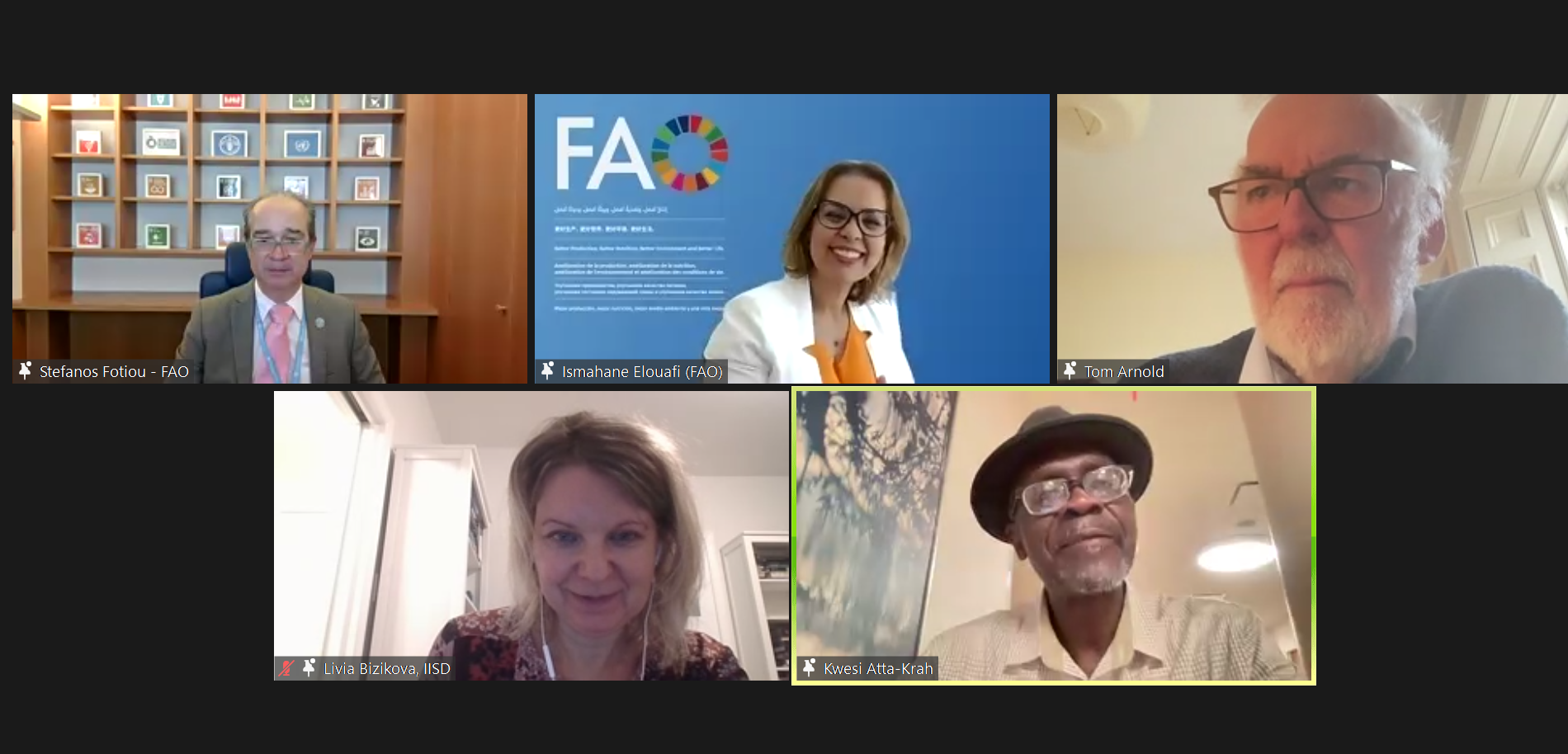SEED FUNDING JOINT PROGRAMMES
Cambodia
Transforming Cambodia’s food systems to become more sustainable, inclusive, and resilient


PROJECT TITLE | Transforming Cambodia’s food systems to become more sustainable, inclusive, and resilient |
| Context | Cambodia’s National Pathway is the outcome of an extensive consultation process, involving more than 2,000 people throughout thirty dialogues, which identifies four priority areas, namely healthy diets for all, empowerment of youth, women and vulnerable groups, resilient livelihoods and food systems, inclusive governance. Acknowledging the risks posed by climate change to hard won development gains and as a co-founder of the Alliance of Champions for Food Systems Transformation, Cambodia is prioritizing the integration of climate change and food systems transformation, building coherence across the agendas. The Council for Agricultural and Rural Development, the government agency coordinating food security and nutrition initiatives in Cambodia, is leading collaborative efforts to translate national aspirations into concrete action. |
| PUNOs | FAO, WFP, UNICEF |
| Contribution to SDGs | SDG 2 Zero Hunger |
| Contribution to other SDG transitions | Climate, biodiversity, pollution |
| Duration | August 2024 – July 2025 |
| Expected financial leverage | $3 million |
| Alignment with SG Call to Action | Policy integration; Food systems governance; Inclusive and participatory design; Private sector engagement |
| Outcomes | The Joint Programme fosters an enabling environment for food systems transformation by enhancing national capacities and policy frameworks, identifying opportunities to unlock financial streams, and strengthening advocacy efforts for food systems transformation. The JP provides crucial support to the alignment of the climate and food agendas, accelerating progress towards resilient, sustainable and inclusive food systems. |
| Partners | Council for Agricultural and Rural Development (CARD) will be the main government counterpart and will coordinate the government activities in conjunction with other key Ministries, including:
|
| Outputs |
|
Applying Systems Thinking for Food Systems Transformation

From left to right: Stefanos Fotiou, Director of the FAO Office of SDGs and UN Food Systems Coordination Hub; Ismahane Elouafi, Chief Scientist at FAO; Tom Arnold, Ireland's Special Envoy for Food Systems 2021-2022; Livia Bizikova, Lead II, Monitoring and Governance Tracking Progress Program at IISD; Kwesi Atta-Krah, Senior Advisor/Consultant, Country and Regional Engagement, One CGIAR-Continental Africa Directorate, IITA.
On October 5, 2023, the UN Food Systems Coordination Hub hosted a webinar titled "Applying Systems Thinking for Food Systems Transformation," shedding light on the pivotal role of systems thinking in achieving the Sustainable Development Goals (SDGs) through the transformation of food systems.
Ms. Ismahane Elouafi, Chief Scientist at FAO, set the stage by emphasizing the critical role of systems thinking in understanding the interdependencies and interconnections between various sectors. With over 3 billion people employed in agrifood systems, she stressed that “harnessing systems thinking can empower us to unlock the full potential of these systems.”
Operationalizing systems thinking
The discussion began with a focus on bridging the gap between theory and practical applications of systems thinking for policymakers. Panel members emphasized the intricate nature of food systems and how systems thinking can offer a holistic approach to problem-solving, enabling a better understanding of connections, trade-offs, and unintended consequences. “We can use systems thinking as a sort of diagnostic tool,” explained Ms. Livia Bizikova from the International Institute for Sustainable Development (IISD). Mr. Tom Arnold, Ireland's Special Envoy for Food Systems 2021-2022, shared his experience in developing Ireland's national strategy for sustainable food systems, recognizing the interconnectedness of production, consumption, environment, and health. Mr. Kwesi Atta-Krah, from One CGIAR-Continental Africa Directorate IITA, stressed the importance collaboration across ministries to enable synergistic outcomes, emphasizing that “the whole must be more than the sum of the parts and if you bring together all the elements but you don't deal with the issue of 'how' , then you can result in negative synergies."
Identifying key priorities
The second discussion focused on prioritizing elements within food systems to enhance sustainability. Mr. Arnold underlined the importance of involving all stakeholders in strategy development and governments' role in sustaining momentum towards implementation. He stressed the need for a balance between economic, environmental, and social sustainability in strategies.
Ms. Bizikova emphasized the importance of aligning food systems transformation strategies with national policy priorities and resource allocation. Mr. Atta-Krah called for recognizing diversity among actors within food systems and fostering collaborative efforts between research and delivery through multi-stakeholder and innovative platforms.
Harnessing intergovernmental processes
Shifting to the role of intergovernmental processes in promoting a systems thinking approach for global governance of food systems, Mr. Atta-Krah emphasized the need for inter-ministerial committees at the national level. “These committees should facilitate cross-cutting discussions to address food systems comprehensively.” Mr. Arnold acknowledged the contributions of intergovernmental processes, such as the UN Food Systems Summits, in promoting food systems thinking and highlighted the upcoming COP28, stating that “for the first time ever, a COP Presidency has talked about the importance of linking policies for climate and food."
In his closing remarks, Mr. Stefanos Fotiou, Director of the FAO Office of SDGs and of the UN Food Systems Coordination Hub, underscored the need to make systems thinking a practical tool for policymakers during policy design, evaluation, and implementation. He further stressed that “we need a substantial effort to change the way we think, not only about policy design, but also about budgeting to ensure effective policy implementation."
This webinar is part of a series led by the UN Food Systems Coordination Hub. The next one will be on Innovating for Sustainable Food Systems Transformations: Scaling Success Stories Beyond Technology, which will take place on 23 November 2023 – register here.
